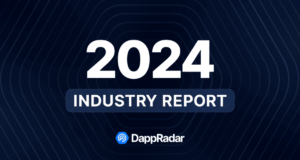U.S. Department of the Treasury Takes on DeFi

The US regulators have recently dealt a series of significant blows to the largest cryptocurrency exchanges and have shifted their focus towards decentralized platforms. As a strong message, they have published a detailed report highlighting the potential risks involved in DeFi.
On this page
The US government has issued a warning about a new threat to national security, as revealed in a 40-page report by the US Treasury on April 6, 2023. The report highlights the risks associated with DeFi and its potential impact.
However, some of the regulators' key accusations may come across as assumptions rather than facts:
- Many DeFi services that claim to be decentralized autonomous organizations (DAOs) are often controlled by a select few individuals, making the term ‘decentralized' more of a marketing gimmick rather than an accurate reflection of their structure.
- Regardless of the level of centralization, any financial institution operating in the US must comply with AML requirements. However, there are major challenges at present as criminal organizations from North Korea and Iran are exploiting DeFi services to launder and transfer their illegal proceeds.
- DeFi services are not adhering to the laws and regulations regarding combating the financing of terrorism (CFT).
- Decentralized platforms are not following the regulations enforced by the U.S. Office of Foreign Assets Control (OFAC).
- DeFi platforms are ignoring laws related to complying with financial restrictions imposed by the USA/European Union, and are providing services to customers from countries on the sanctions list.
- Decentralized services involve the sale of assets that could be considered securities, derivatives, and insurance products. Consequently, this activity is subject to regulation by the Securities and Exchange Commission (SEC).
- Closed-condition smart contracts are frequently utilized on platforms, but sometimes their code is non-transparent and controlled by developers. This discrepancy with the promised decentralization brings extra risks to market participants.
- By the end of December 2022, the total value locked (TVL) on all decentralized platforms reached $39.77 billion. It's worth noting that all these user funds are situated in a high-risk zone.
The Treasury's final chapter strongly urges the US government to consider stricter regulations for DeFi companies, indicating that a new wave of regulations, fines, and bans could be on the horizon. The Department of the Treasury's report echoes the same accusations previously made against Coinbase and Kraken, using the same “gentleman's set” of allegations.
It's worth noting that CEX platforms have not faced any accusations regarding smart contracts, indicating that the US Treasury is broadening its list of concerns to monitor.
At present, the discussion revolves around whether DEX platforms should comply with general financial market regulations. The Treasury points out that since they do not handle user funds and are not intermediaries, some laws may not be applicable to them. However, such increased scrutiny from fiscal authorities could potentially deter many DeFi companies from providing services to clients in the US.
The report serves as a recommendation, evaluating the extent of the issue without directly instructing any action. Nonetheless, it's a cautionary signal for the DeFi market to braceitself for possible future regulatory measures. Initially, regulators targeted centralized exchanges, stablecoins, NFTs, staking services, and now they're setting their sights on DeFi. Although it's just a report, it's not good news as it marks the first-ever risk assessment and thorough examination of decentralized services by the US government.
The content on The Coinomist is for informational purposes only and should not be interpreted as financial advice. While we strive to provide accurate and up-to-date information, we do not guarantee the accuracy, completeness, or reliability of any content. Neither we accept liability for any errors or omissions in the information provided or for any financial losses incurred as a result of relying on this information. Actions based on this content are at your own risk. Always do your own research and consult a professional. See our Terms, Privacy Policy, and Disclaimers for more details.


























